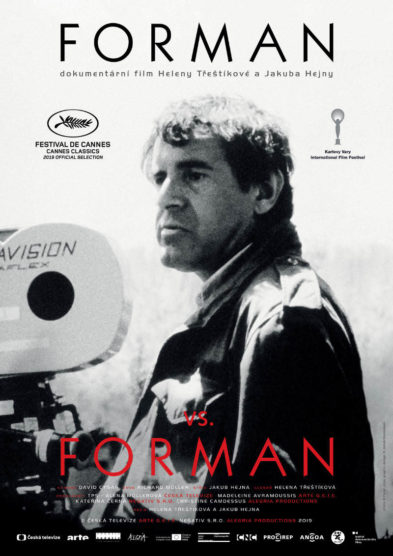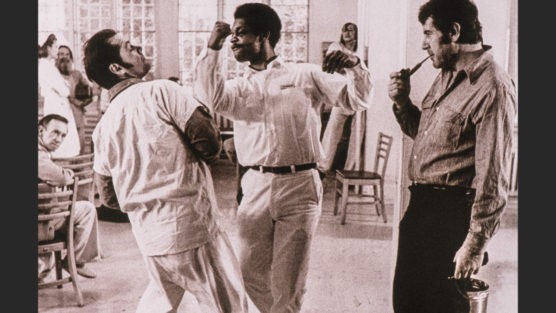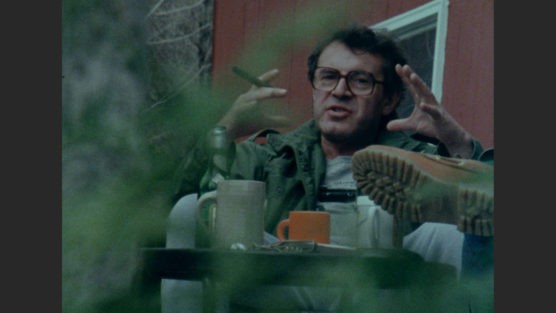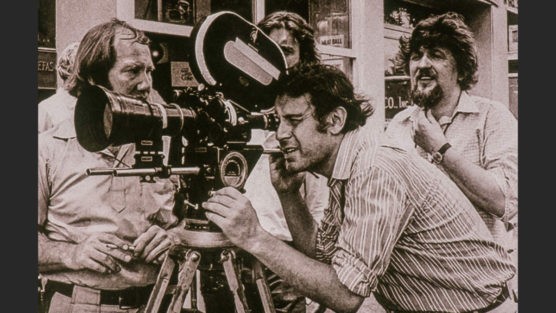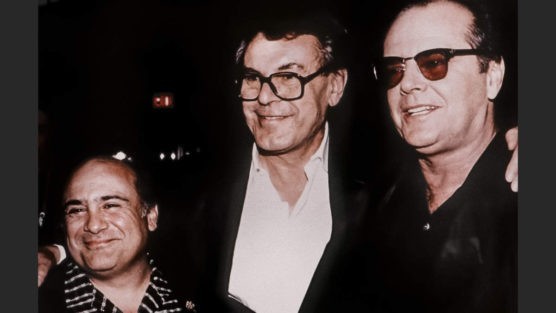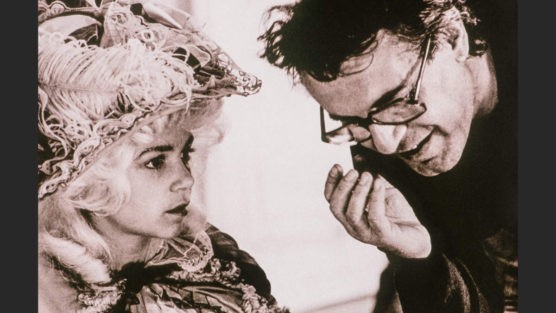What was working on a biographical documentary of Miloš Forman like?
Helena Třeštíková:
From the very start, we knew that Forman vs. Forman would be a comprehensive biographical portrait. It had to be comprehen- sible to both Czechs and foreigners. We wanted it to be understood even by people who weren’t familiar with Forman’s films and those unaware of the historical context. The fact that Forman was not only an important figure but also an exceptionally charis- matic storyteller was an advantage.
Jakub Hejna:
We managed to get archive footage that wasn’t seen by many people before. We have footage from the 1968 Cannes festival in which Forman is standing in his swimsuit on a beach musing about the importance of freedom. At the last moment, we got our hands on footage from the making of The Firemen‛s Ball (Hoří, má panenko!). We had almost finished our film when we received the 30-minute recording as a bonus to something else from Sweden. We tore down the whole setup and reworked it so that we could incorporate this new, absolutely unique footage!
Helena Třeštíková:
We spent two months editing the film intensively. Then we took a break, went searching for extra footage and returned to the editing room. Getting some distance from your work is incredibly important to restore the instincts we gradually lose when we‛re immersed in the film every day. It was great we had no limit on the number of days we could spend in the editing room. We had enlightened producers who understood that we needed to take our time with the film.
How much archive footage did you have?
Helena Třeštíková:
We worked with around a hundred items and ended up using around seventy of them. They were all kinds of materials. We had professionally excellent documentaries by Věra Chytilová and Jaromil Jireš. Chytilová pretty much made Forman put on his paja- mas and go to the Chelsea hotel, almost the same room where he spent a year and a half of his life! He‛s recalling his first Christ- mas in the USA while rolling in pillows there. It‛s much juicier than having him say it as a talking head.
Jakub Hejna:
We wanted to use the most beautiful shots. But sometimes, powerful things were said in the standard TV archival footage. In those cases, we only used the sound and took the images from elsewhere. Often, statements in Czech and English are inter- spersed. It‛s a complex collage.
You’ve been cooperating as a director and an editor for many years. How do you complement each other as co-directors?
Jakub Hejna:
It‛s a dialog of two artists, a search for the right message. I can feel what Helena finds important that the film should reflect and she can tell when I get stuck on something. I focus on the visuals and comprehensibility and Helena concentrates on the content. She comes to the editing room well prepared with underlined parts of statements so that we don‛t have to go through heaps of ballast.
Helena Třeštíková:
Jakub is very fast and skillful, so we manage to try a lot of possibilities. Then we immediately see which one works best.
What difficulties did you have to overcome?
Helena Třeštíková:
Jakub took it very hard when we had to shorten excerpts from Forman‛s films!
Jakub Hejna:
I wanted to honor their structure. He made the scenes with a certain timing. Especially the films from the 1960s have a completely different tempo than what we‛re used to today. But we needed to save time. To me, the question was: can I edit this excerpt? Now I know that in the best interest of the overall pacing the answer is probably yes. We usually shortened the dialog.
What new things did you discover about Miloš Forman in the editing room?
Helena Třeštíková:
I was surprised to see what a fantastic storyteller he was. He had a huge acting talent which was also why he was so great at working with non-actors in his Czech period. He was able to show them the emotions in a way that made them understand what he wanted them to feel.
Jakub Hejna:
I‛m fascinated by the turns of fate he experienced. His fortune and misfortune. His parents in a concentration camp, life-changing coincidences which were probably no coincidences at all and him being able to take advantage of them and turn them into a nar- rative of an individual‛s never-ending fight for freedom against institutions. He elaborated on that theme in his American films as well.
Apart from the theme of the fight for freedom, your film also strongly emphasizes Forman’s emotions. What did you think about his questioning himself?
Helena Třeštíková:
I like people who question themselves very much, because I‛m an incarnation of self-doubt!
Jakub Hejna:
This kind of creative activity is an endless search, an endless uncertainty. Miloš Forman had achieved great success but with every new film, he was starting from scratch. Over and over again. At the same time even though he had doubts, he had to project con- fidence to maintain his authority. We experience this search in the editing room every day, so it clicked very well.
Why is the narrator voiced by Petr Forman, theater artist and Miloš Forman’s son?
Helena Třeštíková:
Since the very beginning, I felt his sons‛ voices were the same as their father‛s and I ended up choosing Petr. The narrator‛s text is partially inspired by Miloš Forman‛s autobiography Co já vím? (What do I know?) co-written by Jan Novák. However, there are no direct quotes. We changed the sentences based on our knowledge of Miloš. And Petr made changes of his own: „My dad would never say it like that. He‛d say it this way.‟
The film doesn‛t show all of Forman‛s career, you stop before the end. Why?
Jakub Hejna:
In general, it‛s expensive to use excerpts from foreign films but it was our intention to finish with Forman‛s The People vs. Larry Flynt. Our goal wasn‛t to show all his films. It was more important to us to follow the theme of freedom which is very prominent in Larry Flynt. At that time, Miloš Forman found his own inner freedom. To us, that was the natural conclusion.
